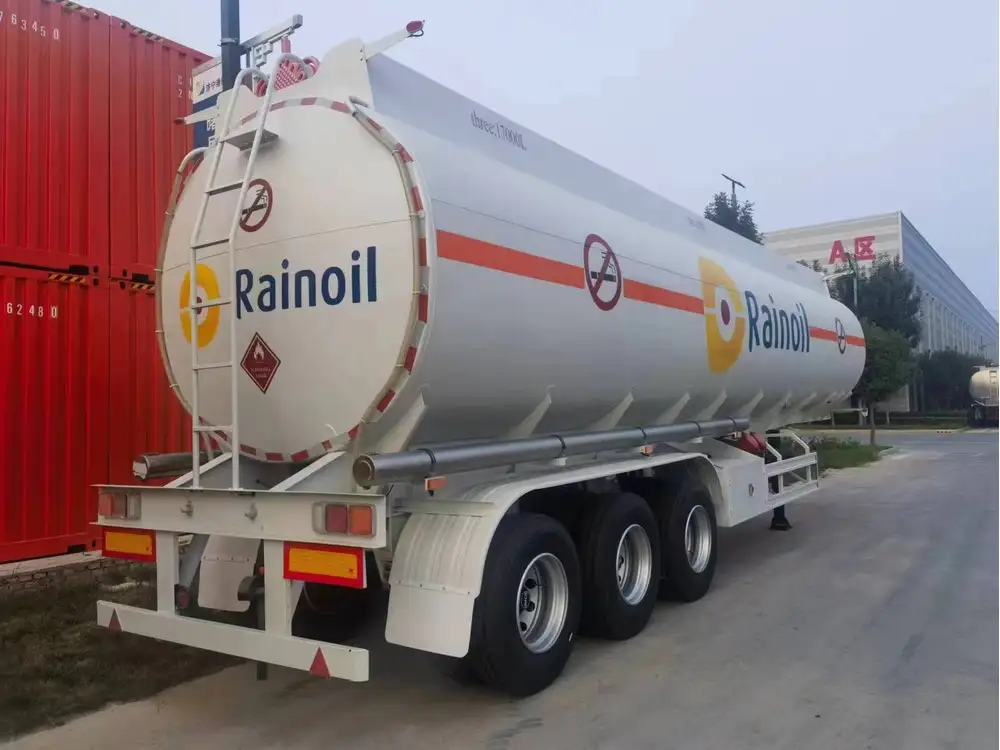In recent years, the demand for tanker trucks in Guinea has surged as the country continues to develop its infrastructure, particularly in the oil and gas sectors. The cost of a tanker truck can vary significantly depending on several factors, including size, specifications, and manufacturer. This article aims to provide potential buyers with an in-depth analysis of the costs associated with purchasing tanker trucks in Guinea, including the various features that can affect pricing.
Understanding Tanker Truck Types and Features
Before diving into costs, it’s vital to understand the types of tanker trucks available in Guinea. Generally, tanker trucks can be classified based on their intended use, capacity, and design. Here are some common types:
| Type of Tanker Truck | Description | Capacity Range |
|---|---|---|
| Fuel Tankers | Used to transport refined fuel. Designed for high safety standards. | 5,000 – 40,000 liters |
| Water Tankers | Used for transporting clean or potable water. | 5,000 – 25,000 liters |
| Chemical Tankers | Designed to handle hazardous materials, usually equipped with a secondary containment. | 3,000 – 30,000 liters |
| Food Tankers | Used for transporting food-grade liquids such as milk or juice. | 5,000 – 25,000 liters |
Factors Influencing Cost
The costs of tanker trucks can vary based on multiple factors. Below are key elements that can substantially affect the pricing:
Capacity: Larger tanks will generally cost more; thus, it’s essential to gauge the needed capacity against budget constraints.
Material: The construction material of the tank can influence costs. Aluminum and stainless steel tanks typically command higher prices than carbon steel.
Design Features: Enhanced features such as insulation, specialized pumps, or custom fittings will increase costs.
Regulatory Compliance: Trucks designed to meet specific safety and environmental regulations in Guinea may have higher upfront costs.
Manufacturer Reputation: Renowned dealers, like CarMax Vehicle, offer warranties and after-sale services that can justify higher prices.

Pricing Estimate
While individual specifications matter, a general pricing guide can provide a ballpark figure.
| Type of Tanker Truck | Estimated Cost (USD) |
|---|---|
| Fuel Tankers | $60,000 – $100,000 |
| Water Tankers | $30,000 – $50,000 |
| Chemical Tankers | $70,000 – $120,000 |
| Food Tankers | $50,000 – $90,000 |
Necessary Documentation and Considerations
When purchasing a tanker truck in Guinea, buyers should consider the following documentation:
Proof of Compliance: Ensuring the vehicle meets relevant safety and environmental standards.
Import Restrictions: If sourcing internationally, understanding import regulations and tariffs.
Insurance Requirements: Identifying the appropriate type of insurance coverage for the vehicle and its cargo.
Choosing a Reliable Manufacturer
Opting for a reputable manufacturer is paramount for obtaining a quality product. Here are some compelling reasons to consider CarMax Vehicle:
Quality Assurance: Our products undergo stringent quality checks to ensure durability and reliability.
Customized Solutions: We offer tailored solutions to meet specific client requirements.
After-Sales Support: Our commitment to customer satisfaction extends beyond the sale, providing maintenance and operational assistance.

Financing Options for Buyers
Purchasing a tanker truck is a significant investment. Below are different financing options available to buyers in Guinea:
Lease Financing
Leasing can be an excellent alternative for businesses not ready for full ownership costs. Regular payments, often lower than loans, can ease cash flow constraints.
Bank Loans
Many financial institutions in Guinea offer loans specifically for commercial vehicle purchases. It’s advisable to shop for competitive interest rates and flexible terms.

Manufacturer Financing Plans
Some manufacturers offer financing solutions directly to clients. Engaging with CarMax Vehicle could provide tailored financing plans based on creditworthiness and business needs.
Maintenance Costs and Considerations
Once a tanker truck is purchased, ongoing maintenance is necessary to ensure longevity and compliance. Key maintenance costs include:
Routine Inspections: Periodic checks for leaks, structural integrity, and safety features.
Tire and Brake Management: Regular inspections for tire wear and brake performance are crucial for safety.
Repairs: Setting aside a budget for potential unforeseen repairs can mitigate financial strain.
Maintenance Checklist
- Check and replace oil filters regularly.
- Inspect brake systems at least once a month.
- Monitor tire pressure weekly.
- Clean the tank interior periodically to avoid contamination.

FAQs About Tanker Trucks in Guinea
1. What is the average lifespan of a tanker truck?
The average lifespan of a well-maintained tanker truck can range from 10 to 15 years, depending on usage and maintenance practices.
2. Are there import restrictions on tanker trucks in Guinea?
Yes, there are specific regulations involving safety and emissions standards which must be adhered to when importing vehicles into Guinea.
3. How can I ensure the safety of transported liquids?
Utilizing features like secondary containment systems, pressure monitoring devices, and regular maintenance checks can help ensure safe transportation of liquids.
4. What are the common financing options for purchasing a tanker truck?
Common financing options include leasing, bank loans, and financing plans provided by manufacturers like CarMax Vehicle.
Conclusion
In summary, understanding the cost of tanker trucks for sale in Guinea involves an exploration of various types, influencing factors, and financing options. Businesses must evaluate both short-term and long-term needs when making this critical investment. By choosing a reputable manufacturer like CarMax Vehicle, buyers can ensure they receive a durable product tailored to their specific requirements, backed by comprehensive after-sales support. Considering the expanding market, making a strategic investment in a tanker truck today could pave the way for future growth and opportunities in Guinea’s burgeoning economy.













Reviews
There are no reviews yet.